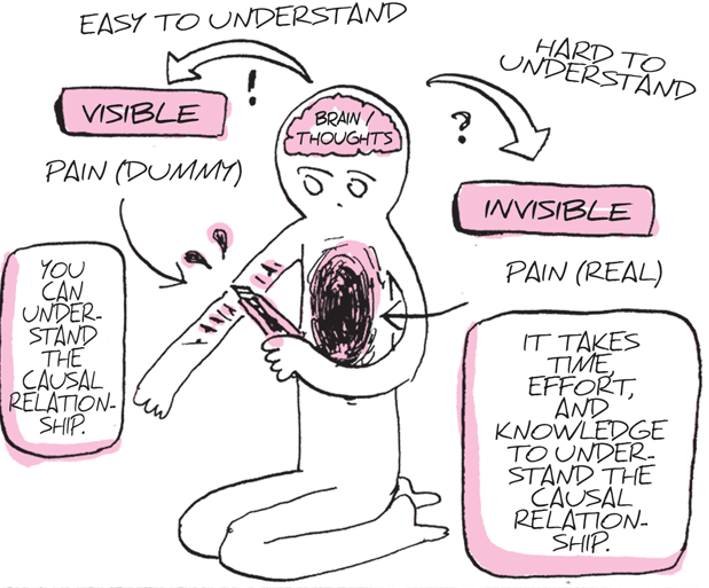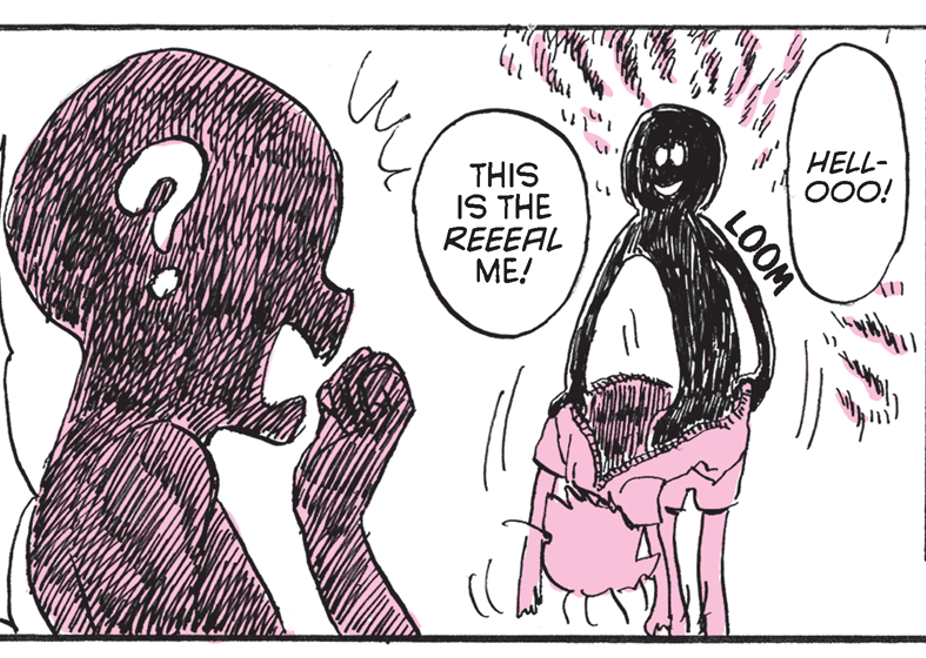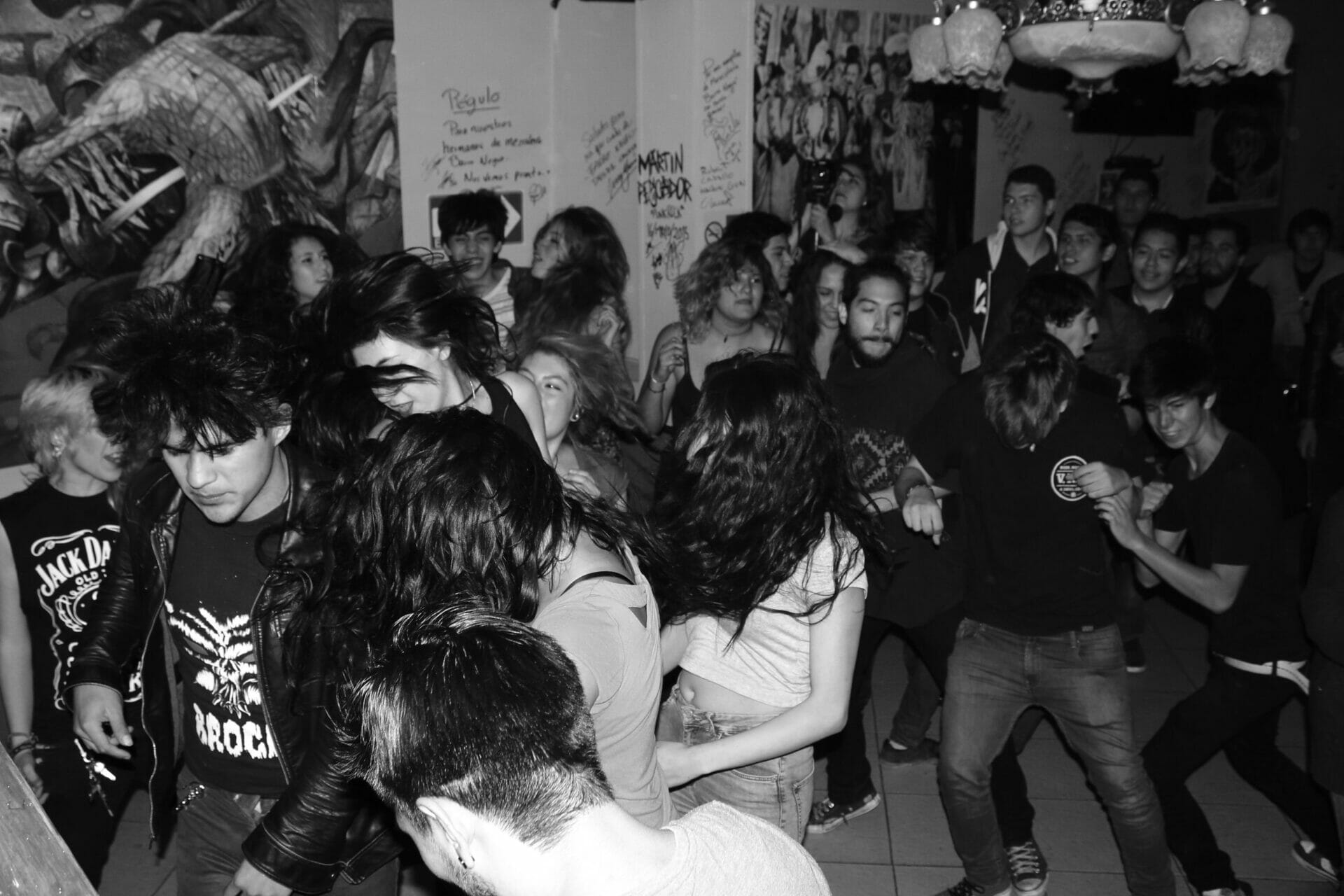
My Lesbian Experience With Loneliness | The revolution of self-discovery
Author
Year
Format
When 29-years-old Kabi Nagata published her first manga in 2016, My Lesbian Experience with Loneliness, she had no idea it would win two awards (Crunchyroll Anime Award in 2017 and Harvey Award in 2018). Nor that it would have a significant impact on its genre. For her, this comic was the beginning of an intimate revolution: the revolution of self-discovery and self-acceptance of Nagata herself.
My lesbian experience with loneliness is an autobiographical comic about depression, inadequacy, and sexuality. The blunt writing style contrasts with the cute, pink-dominated visuals, which can disorient the reader at first. But page after page, the narrative almost feels like small talk with a close friend.
A woman’s struggle with identity
It is not an easy task to describe what Nagata goes through in My Lesbian Experience with Loneliness. The narration is fragmented, following her thoughts but sometimes leaving the reader behind. The story starts as soon as she leaves high school. She has to face adulthood she is not ready for. One crisis after another, she desperately tries to cope with a society that seems to reject her; she survives episodes of self-harm, eating disorders and intense depression. Topics similar to the ones of Welcome to the N.H.K., where the main characters are hikikomori alienated from society.
For each struggle, she describes what her illnesses meant to her and how she got through them. Two features are particularly important for Nagata: her love for art and her love for women. Once she finally gets to explore both, she flourishes and starts to find her place in the world.

A revolution in yuri manga
In Japan, manga about lesbian relationships have a specific name: yuri. They mainly focus on the relationship between two women and they are often explicit. My Lesbian Experience with Loneliness is classified as a yuri, and it definitely does not lack explicit content. However, the most refreshing part of this manga is the way it portrays homosexuality.
Nagata does not romanticize homosexual experiences. She depicts them in an authentic and realistic way, something which is uncommon for this genre. At the same time, it is not a story of coming out or of struggle against a homophobic society. The protagonist’s sexuality is one of the few things she’s certain about. In a world in which homosexual stories mostly revolve around sexuality and not the people themselves, My Lesbian Experience with Loneliness comes as a pleasant surprise.

Nagata’s hidden passion for drawing
My Lesbian Experience With Loneliness was first published on Pixiv, as Nagata explains in the manga. It was, to her, a way of being seen both by others and herself. At that point, she had figured out that she wanted to draw manga for a living, but she struggled to find something to talk about. In the end, she chose to talk about her own life in an honest and relatable way.
In her interview with Pixiv, Nagata talks about how “I’ve always been drawing as far as I remember”. She also mentions iconic Takehiko Inoue‘s Slam Dunk as her gateway to reading manga. However, in the end, it was the genre of autobiography that she found herself most comfortable with. After My Lesbian Experience with Loneliness, she continued the series with two more books, also talking about her life: My Solo Exchange Diary, which came out in Japan later in 2016, and My Alcoholic Escape from Reality, released in 2019.
Autobiographies in comics
Autobiography keeps on being a relevant genre, as demonstrated by the recent Netflix series Unorthodox. Also among comics, there is a huge flow of autobiographical material. Two classics in this respect are Art Spiegelman‘s Maus and Marjane Satrapi‘s Persepolis, which use autobiography to explore social and cultural issues. Nagata’s My Lesbian Experience with Loneliness, on the other hand, is more personal and focused on the interior life.
While it took many years for Nagata to figure out what she wanted to write, it only takes a couple of hours for the reader to get into this deeply personal story. They will surely take something from it: be it a new faith in the future or the feeling of being understood.
Tag
Buy a ☕ for Hypercritic








